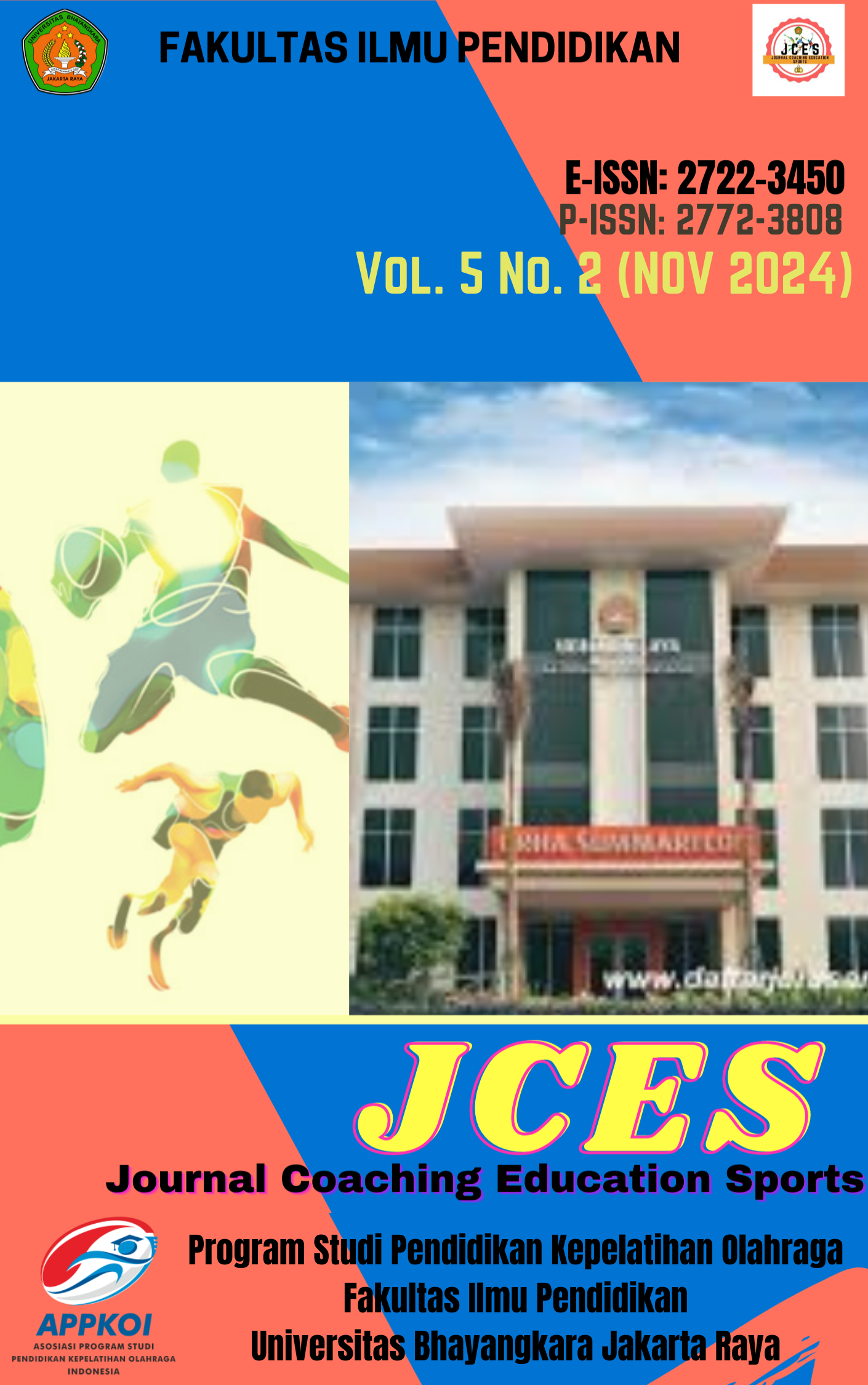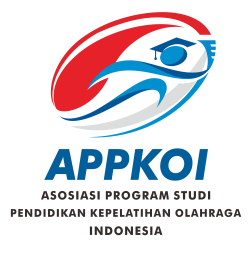The Practices and Difficulties of Coaching Young Sport Training Participants at Bahr Dar University Sports Academy
DOI:
https://doi.org/10.31599/bz1kxq34Keywords:
Sport Education Management, Philosophy of Science, Education, Transformational LeadershipAbstract
This study examined the Bahir Dar University Sports Academy's techniques and environment that help young children play sports. The researchers conducted focus group talks with trainees and one-on-one interviews with many coaches and senior officials to attain this goal. Bahir Dar University's sports academy directors, trainers, and trainees were research participants on purpose. The investigation included a qualitative case study and data theme analysis. The study found that most survey respondents believed students' training experiences and time and effort allocation were crucial to talent development. Best practices show that most sports trainings are well-managed in terms of time and schedules, equipment, training resources, and well-equipped locations, and many have solid relationships with instructors-coaches. Training issues include a lack of transportation to and from the training center, a lack of timely supervision and support, especially for sports, practical skill training without theoretical and psychological academic sciences, and playing a few friendly matches with more advanced clubs. Participants strongly advocated for some coaches to work with players regularly, for training to be well-balanced and supported by academic sciences, psychological training, and other critical factors, for transportation, dietary guidelines, and sporting equipment and materials, and for friendly matches with similar-aged players.
Downloads
References
Asmamaw, A. (2016). Sirak H/Mariam and in Ethiopian sports academies–insiders’ perspectives. Article History.
Bailey, R., Collins, D., Ford, P., MacNamara, Á., Toms, M., & Pearce, G. (2010). Participant development in sport: An academic review. Sports Coach UK, 4, 1–134.
Camiré, M., Trudel, P., & Forneris, T. (2009). High school athletes’ perspectives on support, communication, negotiation and life skill development. Qualitative Research in Sport and Exercise, 1(1), 72–88.
Danish, S. J., Forneris, T., & Wallace, I. (2005). Sport-based life skills programming in the schools. Journal of Applied School Psychology, 21(2), 41–62.
Day, D. V, Gordon, S., & Fink, C. (2012). The sporting life: Exploring organizations through the lens of sport. The Academy of Management Annals, 6(1), 397–433.
Degli Innocenti, E., Geronazzo, M., Vescovi, D., Nordahl, R., Serafin, S., Ludovico, L. A., & Avanzini, F. (2019). Mobile virtual reality for musical genre learning in primary education. Computers & Education, 139, 102–117.
Derry, S. J., Pea, R. D., Barron, B., Engle, R. A., Erickson, F., Goldman, R., Hall, R., Koschmann, T., Lemke, J. L., & Sherin, M. G. (2010). Conducting video research in the learning sciences: Guidance on selection, analysis, technology, and ethics. The Journal of the Learning Sciences, 19(1), 3–53.
Eder, D., & Parker, S. (1987). The cultural production and reproduction of gender: The effect of extracurricular activities on peer-group culture. Sociology of Education, 200–213.
Fox, K. R., & Magnus, L. (2014). Self-esteem and self-perceptions in sport and exercise. In Routledge companion to sport and exercise psychology (pp. 34–48). Routledge.
Gee, C. J. (2010). How does sport psychology actually improve athletic performance? A framework to facilitate athletes’ and coaches’ understanding. Behavior Modification, 34(5), 386–402.
Gould, D., Dieffenbach, K., & Moffett, A. (2002). Psychological characteristics and their development in Olympic champions. Journal of Applied Sport Psychology, 14(3), 172–204.
Grbich, C. (2012). Qualitative data analysis: An introduction. sage.
Handford, C., Davids, K., Bennett, S., & Button, C. (1997). Skill acquisition in sport: Some applications of an evolving practice ecology. Journal of Sports Sciences, 15(6), 621–640.
Keegan, R., Spray, C., Harwood, C., & Lavallee, D. (2010). The motivational atmosphere in youth sport: Coach, parent, and peer influences on motivation in specializing sport participants. Journal of Applied Sport Psychology, 22(1), 87–105.
Lumpkin, A. (2010). Teachers and coaches as leaders demonstrating character and competence. Journal of Physical Education, Recreation & Dance, 81(8), 49–52.
Lumpkin, A., & Stokowski, S. (2011). Interscholastic sports: A character-building privilege. Kappa Delta Pi Record, 47(3), 124–128.
Lyle, J. (2005). Sports coaching concepts: A framework for coaches’ behaviour. Routledge.
Mutisya, M. M. (2019). The Role of Sports Diplomacy in Promoting Kenya’s Foreign Policy Goals (2002-2018). United States International University-Africa.
Neale, J. (2016). Iterative categorization (IC): a systematic technique for analysing qualitative data. Addiction, 111(6), 1096–1106.
Penney, D. (2006). Coaching as teaching: New acknowledgements in practice. In The sports coach as educator (pp. 43–54). Routledge.
Platts, C., & Smith, A. (2009). The education, rights and welfare of young people in professional football in England: Some implications of the white paper on sport. International Journal of Sport Policy, 1(3), 323–339.
Rynne, S. B., Mallett, C., & Tinning, R. (2006). High performance sport coaching: Institutes of sport as sites for learning. International Journal of Sports Science & Coaching, 1(3), 223–234.
Tadesse, T., Asmamaw, A., Habtemariam, S., & Edo, B. (2020). Sports academy as an avenue for psychosocial development and satisfaction of youth athletes in Ethiopia. Sustainability, 12(7), 2725.
Ward, P., Farrow, D., Harris, K. R., Williams, A. M., Eccles, D. W., & Ericsson, K. A. (2008). Training perceptual-cognitive skills: Can sport psychology research inform military decision training? Military Psychology, 20(sup1), S71–S102.
Wiersma, L. D., & Fifer, A. M. (2008). “The schedule has been tough but we think it’s worth it”: The joys, challenges, and recommendations of youth sport parents. Journal of Leisure Research, 40(4), 505–530.
Zimmerman, B. J. (2008). Investigating self-regulation and motivation: Historical background, methodological developments, and future prospects. American Educational Research Journal, 45(1), 166–183.
Published
Issue
Section
License
Copyright (c) 2024 Melese Ebabu Mossa, Yilkal Chale Getie

This work is licensed under a Creative Commons Attribution 4.0 International License.






.png)







